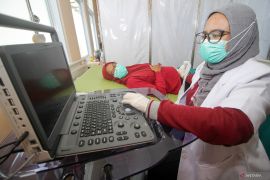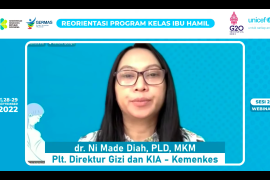"If we add up the numbers, one can imagine how many Indonesian mothers die every day during delivery," Sudibyo, vice chief of the National Family Planning Agency (BKKBN), said here Tuesday at a meeting here with local ulema from throughout South Kalimantan.
He said according to a study on the quality of life of Indonesian people in 2011 the country`s maternal mortality rate was 228 per 100,000 successful deliveries.
Meanwhile, the infant mortality rate among 0-11-month-old babies was 34 per 1,000 successful deliveries in a population of which 60 percent had only enjoyed elementary school or lower eduction and life expectancy was about 68/72 years.
"By comparison, in Japan the population`s life expectancy has reached 100 years so that now 40 percent of the population consists of senior citizens," he said.
In its efforts to increase Indonesia`s life expectancy and reduce the maternal mortality and infant mortality rates, the BKKBN was now holding training programs for 35,000 midwives, 10,000 general practitioners and gyneacologistsn.
The programs were designed to increase their skill in helping women give birth but they were at the same time also being trained in contraceptive device implanting techniques, Sudibyo said.
It was hoped that by increasing the number of midwives and doctors skilled in helping women give birth, deliveries in remote or isolated regions could be done in medical ways so that the maternal and infant mortality rates could drop.
The national target for maternal mortality rate reduction efforts for 2015 was to make the figure drop from 228 per 100,000 successful deliveries to 102/100,000 and the infant mortality to 23/1,000.(*)
Editor: Aditia Maruli Radja
Copyright © ANTARA 2012











